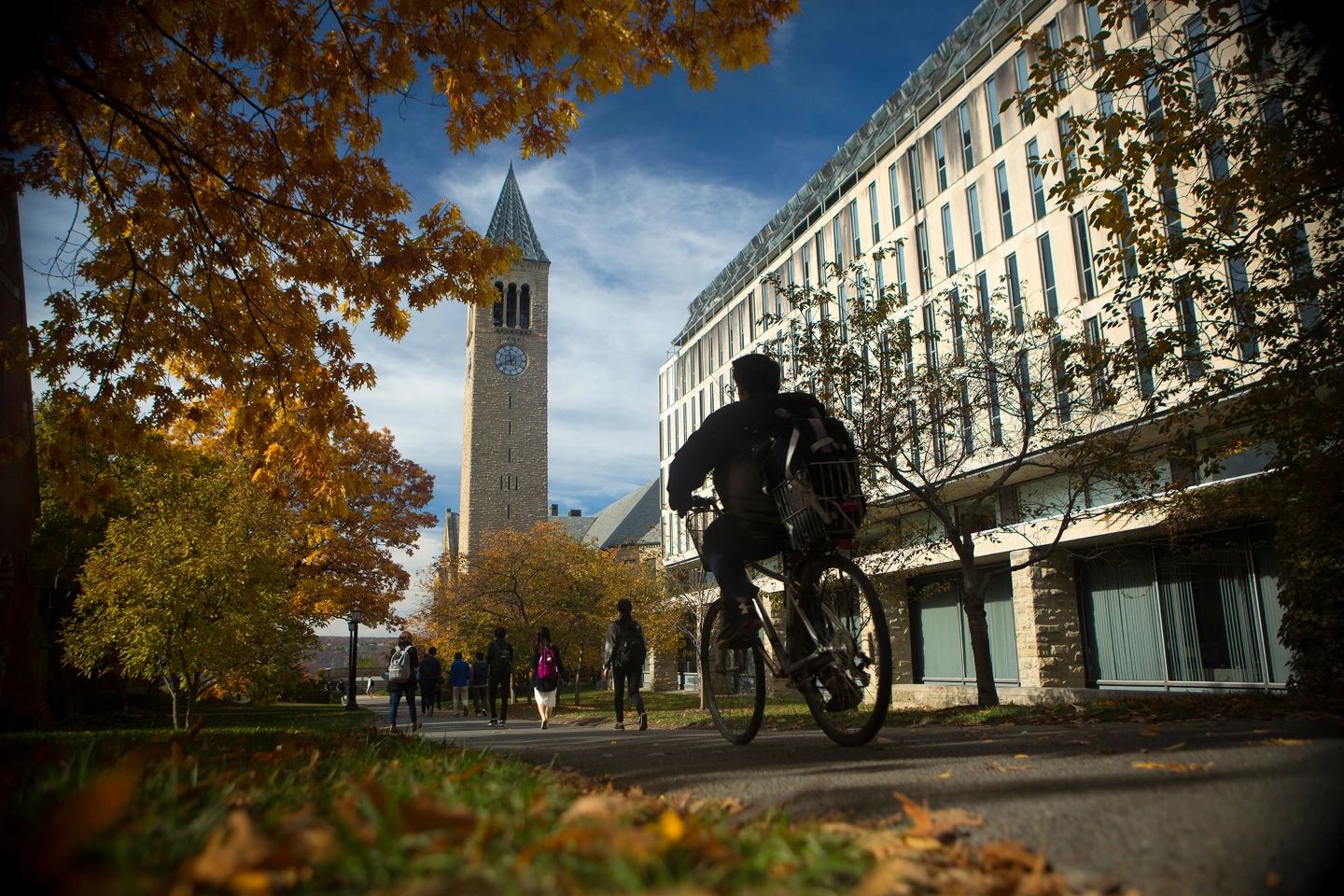Cycling on Campus
Keys to Safe and Successful Cycling at Cornell
Cycling is an excellent way to get to and around campus, and navigating Ithaca’s hills is easy with TCAT’s free bike rack program.
- Follow safe cycling guidelines.
- Obey all path and pavement markings.
- Yield to pedestrians at crosswalks.
- Be sure to Register your bicycle here free of charge!
- Bicycles should be parked at bike racks or in bike storage areas.
Biking Guidelines
• Register your bike with Cornell Commuter & Parking Services and your local municipality.
• Park smart – use a bike rack or a designated residence hall storage area.
• Lock it well – choose a U-lock or other high-quality lock, securing both the frame and a wheel to the rack.
• Report theft promptly – contact the police right away if your bike goes missing.
Taking these steps helps protect your bike and makes recovery easier if it’s lost or stolen.
Keep Life Safety Zones Clear
Please park your bike or other wheeled vehicle only in designated areas. Avoid blocking fire hydrants, fire lanes, emergency zones, service drives, building entrances, ramps, or walkways.
Keeping these spaces open ensures quick access for emergency responders, accessibility for wheelchairs, and safe passage for pedestrians and service equipment.
Rules for Electric Mobility Devices
Thinking about using an e-bike or other electric mobility device on campus? Visit the Cycling Rules and Regulations page to learn about where and how you can ride safely, responsibly, and in compliance with campus guidelines.
Ecology Alert – Protect Our Natural Spaces
To preserve Cornell’s beautiful landscapes, some areas—like parts of the Botanic Gardens, the City’s Six Mile Gorge, and other public lands—are closed to bicycles. These restrictions help protect fragile plants, prevent trail erosion, and safeguard wildlife habitats.
Please follow the posted signs and choose approved bike routes. By riding responsibly, you help keep these special places healthy and enjoyable for everyone.
Keep Your Bike Safe (and Avoid Impound)
To keep campus pathways clear and safe for everyone, please park only at designated bike racks.
Reasons bikes may be impounded:
- They are a safety hazard.
- Block walkways, stairways, doorways, or hallways
- They are locked to railings, signposts, trees, or anything that isn’t a bike rack.
- Appears to be abandoned
Parking Bikes Indoors
You may park your bike inside a campus building only with written permission from the building coordinator or director. This helps ensure the safety, accessibility, and protection of building spaces.
*Using a bike rack helps protect your bike and ensures our campus stays safe and accessible.

